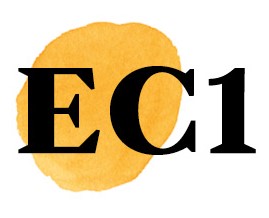We need to focus on the three Rs of reduce, reuse, recycle and up the ante says Councillor Valerie Bossman-Quashie

In many ways, since Covid things appear to have returned to normal. We’ve seen a lot of people coming back to work as well as to our bars and restaurants, and the streets are lively once again. But because we saw those streets when they were silent during the pandemic, I think we notice the problems more – I certainly do. And one thing that currently bothers me is the amount of litter that we can see – everything from hire bicycles thrown down onto pavements, to dogwaste bags, right down to chewing gum and cigarette butts.
I really think it’s time to up the ante on this, and think about where all these items belong and where waste goes. It’s almost four years since June 2019, when Islington Council declared an environment and climate emergency and put forward the plan to make Islington net zero carbon by 2030, with the three ‘R’s – reducing, reusing and recycling – part of that strategy, and by 2026 to send no biodegradable or recyclable waste to landfill. While the council is doing a good job, we are still below 35 per cent towards meeting the targets. There’s so much more we need to do to tidy up our estates and residential streets and make them more liveable – and this has become higher-key since Covid.
Islington Council’s Liveable Neighbourhoods scheme is excellent and aims to include everything from recycling to creating more environmentally-friendly places where communities can congregate. As well as enabling people to walk and interact in places free from vehicle pollution, they also encourage the three ‘R’s. But we still need to do more to get people actively involved. It’s addressed in schools, but perhaps we need to address these matters in other spaces too, including local shops.
It’s not good that we’ve got low recycling figures and we should all be more conscientious. So I think we need to start crunching data, enabling those in the council to make note of the highest offending places. We could start by looking at our streets: which ones are the worst for gum, for example, or the worst for cigarette butts? Which are the worst areas for dog waste? This way we might find out how conscious our communities are, and help raise the game.
After all, things can improve. In general people are more conscious of litter and recycling. Dog waste was far more common on the streets about 20 years ago. Look at the way many of us are more conscious of our diets, with offices (including Islington Council) promoting plant-based diets as well as increased recycling and composting of waste food. People are far more aware of single-use plastics. Residents are reaching out for more information on recycling and our libraries have recycling places where you can take items such as old hardware and batteries.
But there’s still a lot of room for improvement. So as well as looking at how to keep our streets clean, we should also look at all the other things that we’re not doing, and look at what we might do better. A whole community push would be a start: reminding our children and families to become more aware of our environment. Those with interests like food outlets and bicycle hire companies should be more responsible, as should their users. It has to be a conscious decision by all of us to become more liveable neighbours in our liveable neighbourhoods.










